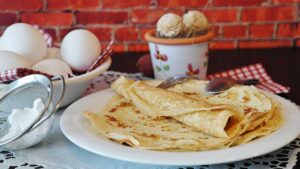Hypertension can be classified as a lifestyle or infectious disease. The latter is mainly caused by the presence of other people’s pathogens. Still, lifestyle diseases are usually preventable because they result in a bad diet and lifestyle. They are called lifestyle diseases.
Hypertension is a category of lifestyle-related disease. Sometimes described as a silent killer and a silent killer, it is essential to have your blood pressure checked regularly and keep it in control. High blood pressure results in an increase in blood pressure. It causes the heart to pump blood through the arteries at a faster rate, which is harmful to the person’s general health.
Ayurveda is a system of medicine that considers high blood pressure as an imbalance of two doshas, pitta, and vata. Ayurvedic treatment for high blood pressure Ayurvedic remedy for high blood pressure seeks to balance these doshas. In some instances, unbalanced Kapha could also result in hypertension.
High blood pressure demands a carefully planned approach to treatment, and Ayurveda aids you in this. If you already have hypertension, Ayurveda suggests the following easy lifestyle changes that can help you control high blood pressure more effectively.
The importance of Dinacharya
Following a regular schedule for your day (dinacharya) is crucial to maintaining your body’s blood pressure. So, eliminate all distractions that hinder you from executing the healthy routine of your daily life. Create a sleep-wake plan and a specific time to exercise and meditate. Keep your gadgets off of at least one or two hours before bedtime, and then sleep in the early hours. Make it a habit to get up early and perform any workout or yoga. This will help ensure that your body’s biorhythm is maintained and maintains normal blood pressure.
A restful and peaceful night’s rest is vital.
A restful night’s sleep is crucial to ensure that all of our body organs are rested and prepared for the demands that will be the next day. Sleeping rejuvenates the brain’s tissues and all other parts that comprise the human body. Ayurveda believes that a healthy sleep routine helps balance doshas and aids in creating Ojas (energy). This is why you could feel tired or weak the next day when you don’t have enough rest in the time of night—applying a few drops of sesame oil to your head and feet soles before bed can help you rest and relax. Drinking a cup of warm milk with a pinch of turmeric before bed is beneficial for restful sleep.
Beware of stress and anxiety.
Stress and anxiety can often be associated with hypertension. Take a morning meditation for between 15 and 20 minutes, in addition to performing breathing exercises that are controlled, such as “Bhramari” or “Anulom-vilom.”. Meditation can fill your mind with positive energy, create peace of mind, and calm your body and soul.
‘Abhyanga’ can help.
Vitiated vata dosha can cause hypertension. So, in addition to doing light exercises, you should practice the ‘Abhyanga’ (self-massage) using sesame oil since it assists in balancing the doshas present in our body. Abhyanga helps increase circulation throughout the lymphatic system and nervous vessels. It is possible to do self-massage in your home. Then, once every few days, you can have an oil massage at a reliable panchakarma clinic.
Eat a balanced diet to keep the ideal weight for your body.
Well-balanced body weight plays a crucial function in keeping blood pressure. Stay away from eating unhealthy food items packaged, processed, and packaged foods because they lack “prana.” Alternate them with fresh fruits and vegetables prepared in a healthy and nutritious manner.
A few dietary adjustments to help balance the vitiated doshas of someone with high blood pressure, as recommended by Ayurveda, are to stay clear of triggers and eat a diet that aids the body in reaching an equilibrium. The most effective method to do this is to adopt a vegetarian diet.
Include vegetables like bitter gourd, parsley garlic, drumsticks, garlic, and fruit like watermelons, bananas, guavas, and grapes. Dairy products such as cottage cheese, milk, and butter are excellent alternatives.
But, be sure to reduce your caffeine intake as it’s thought to cause further irritation to the system and raise blood pressure.
Also, reduce the amount of salt in your diet and reduce the number of pulses and cereals. Remember to stay clear of eggs, red meat, and red when trying to control the doshas and lessen the chance of blood pressure-related attacks.
Regular exercise to get active.
Regular exercise keeps your body and mind in good shape and helps keep all illnesses lower. Alongside improving the overall health and health of the body, exercise aids in reducing blood pressure.
Try gentle exercises, such as running for 30 minutes at a fast pace. Include meditation and yoga as part of your daily routine. While breathing techniques and meditation can aid in reducing stress levels Walking is proven to lower the pressure of blood and boost the health of your heart.
In addition to suggesting these lifestyle changes to ease the symptoms associated with hypertension. There are a variety of remedies prescribed by ayurvedic experts to control hypertension and protect organs in the body’s internal system. Some of the most recommended include Gokshura (a diuretic, an ACE inhibitor) and ‘Sarpagandha’ and the ‘Gulkand’ (uplifts mood and helps to keep tension low).
Notice: While hypertension is a common occurrence among those older than 50, many are looking for treatments for their hypertension in the current generation of youngsters. In addition to following the recommended lifestyle guidelines, see an expert if you’ve got an elevated blood pressure reading of 140/90 or greater.
























+ There are no comments
Add yours